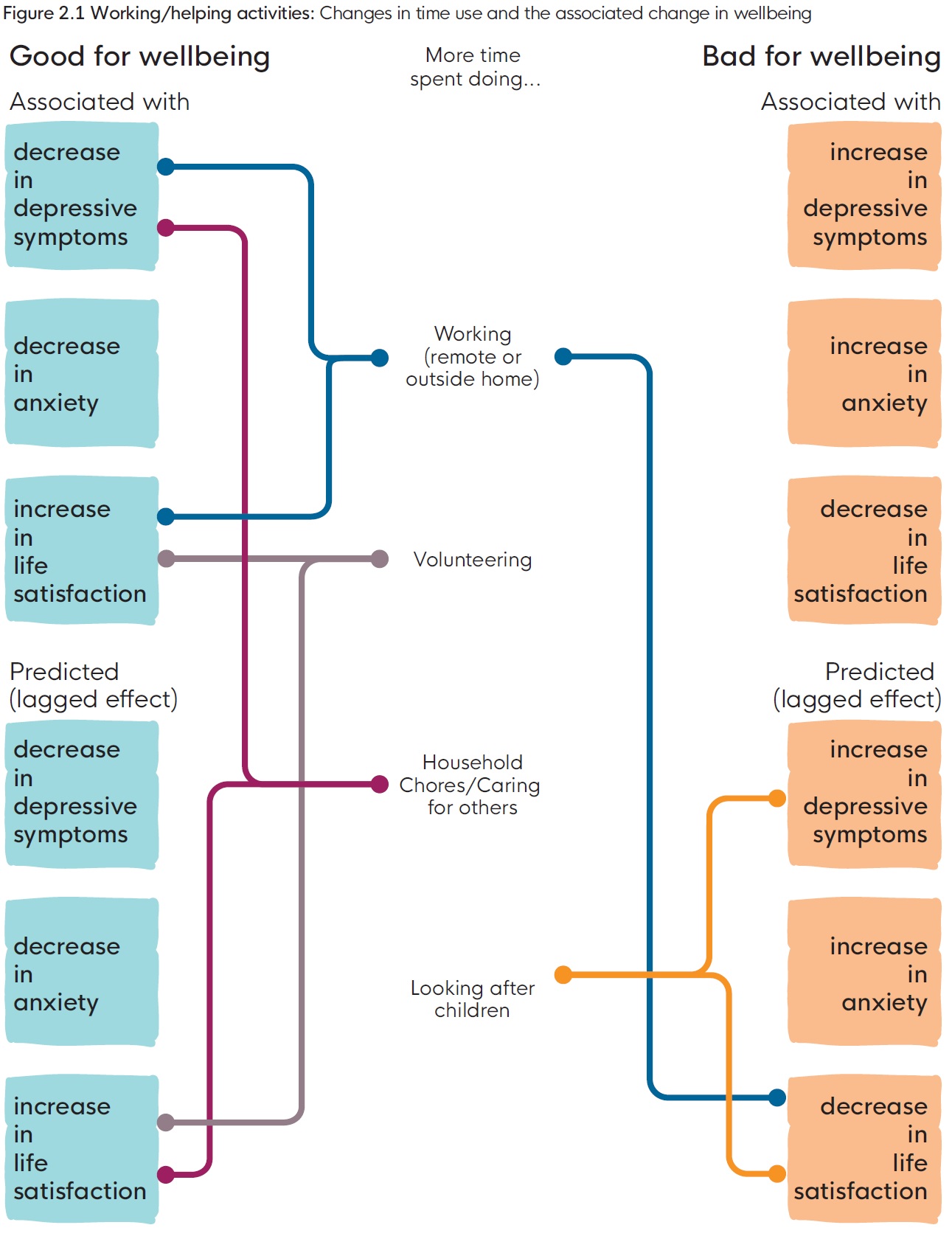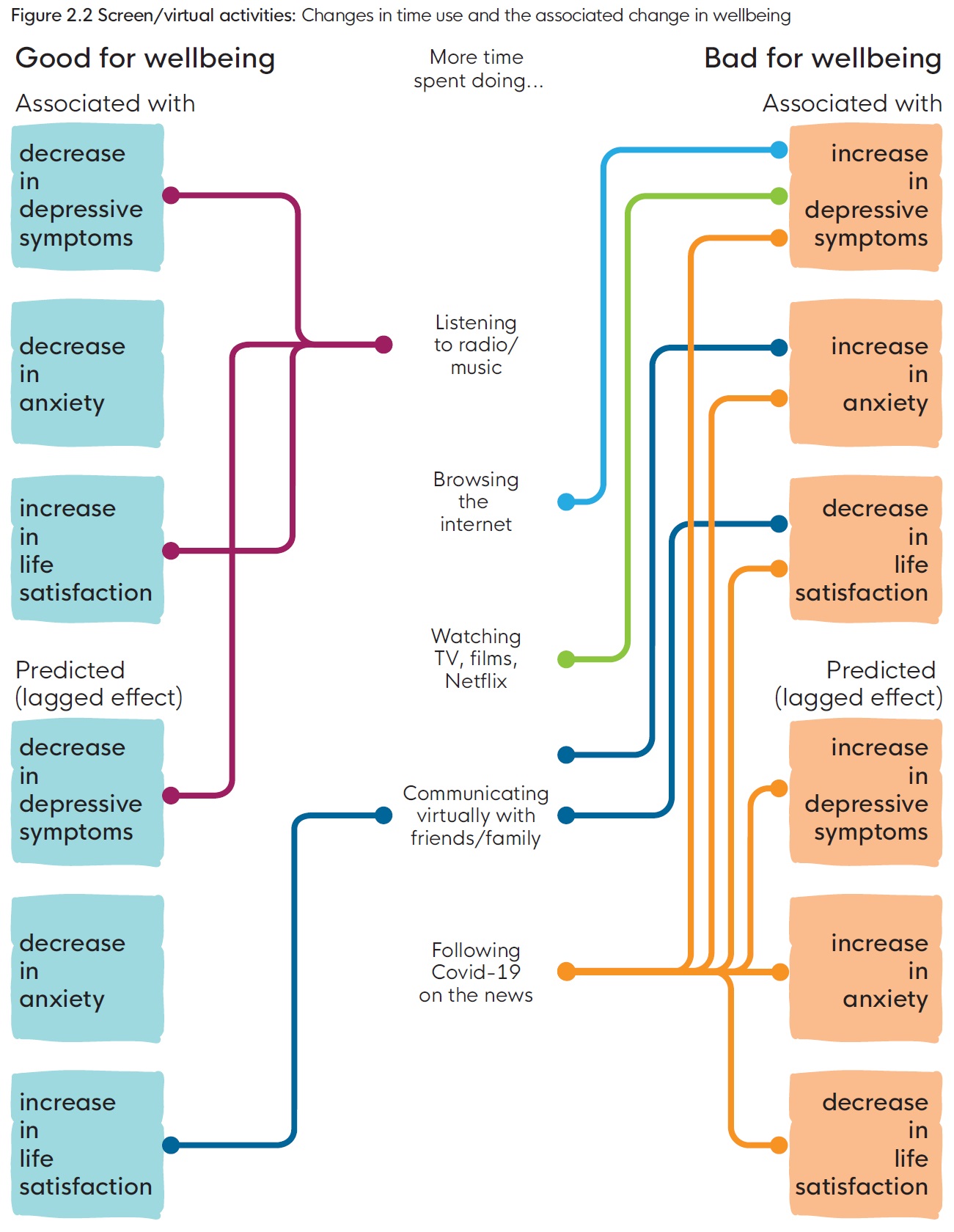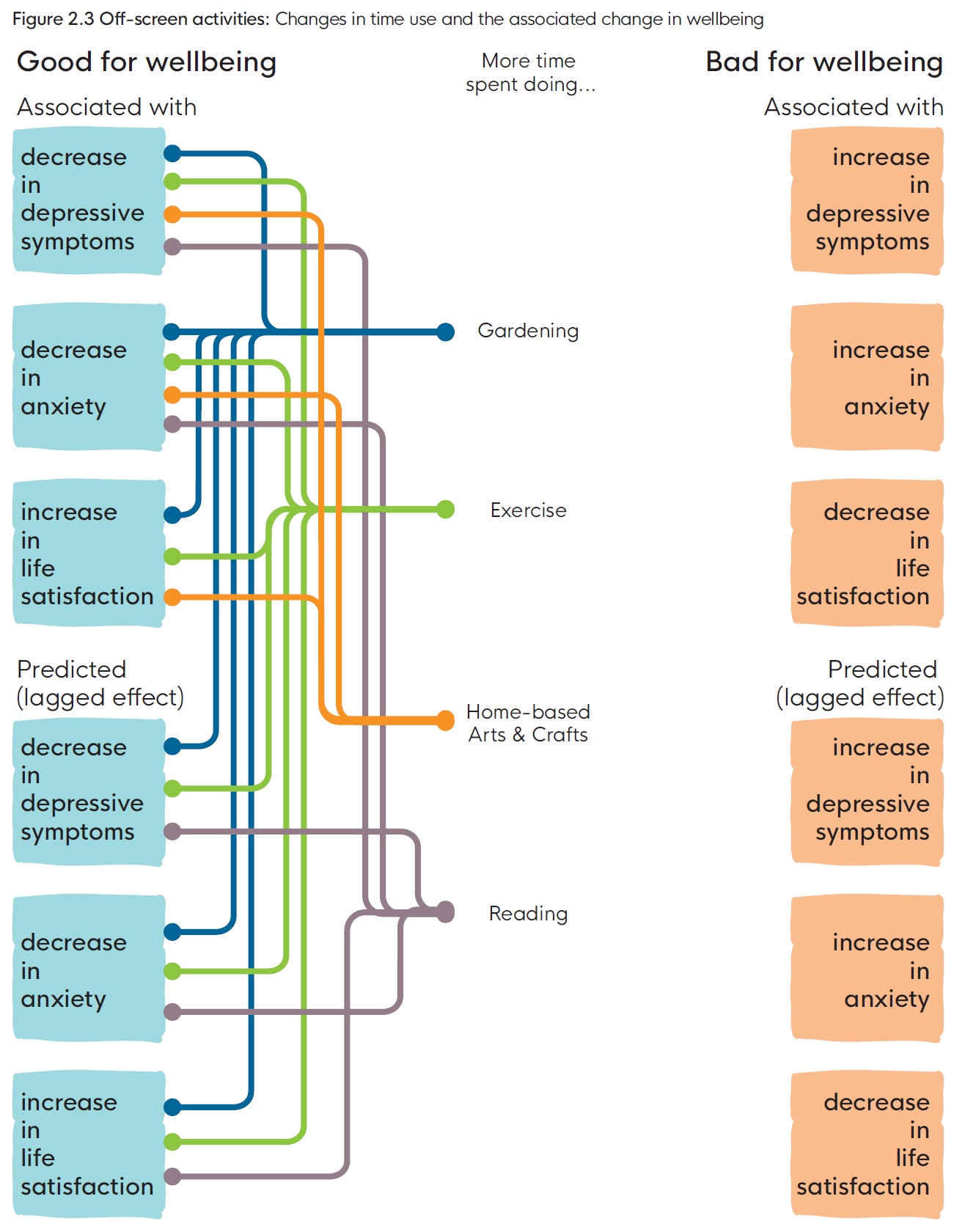What helped the UK cope with the Covid-19 pandemic and lockdowns?
Today we publish What helped the UK cope with the Covid-19 pandemic and lockdowns? looking at the wellbeing impact of different coping strategies – the cognitive and behavioural efforts that we use to manage stress.
Covid-19 and the restrictions from the lockdown have affected, and continue to affect, all aspects of our lives.
We have been working with the University College London, to summarise data from their Covid-19 Social Study, which explores the effects of the virus and social distancing measures on adults in the UK – in order to understand the psychological and social impact of the pandemic.
How did we cope?
We wanted to find out what behaviours and activities people have used to cope with lockdowns and how they have helped our wellbeing. Data from the start of the first lockdown in March and April 2020 found that:
- Staying connected to friends and family was the most important coping mechanism and helped more than 75% of people to cope.
- Gardening, exercising or reading for 30 minutes or more was most effective at lowering anxiety.
- Withdrawing from others, watching films or substance use helped to reduce short-term stress, but left people feeling hopeless or self-blaming.
- Following Covid-19 related news had the most negative effect on our wellbeing.
Our habits also changed during this time:
- 16% of people reported persistently eating more.
- During the first couple of weeks of lockdown, just over half of people who usually drink alcohol, reported a change in their drinking habits.
- 20% of people who had previously gambled reported a change in their gambling behaviour compared with before lockdown.
- 22% of people increased their engagement with the arts.
- Volunteering increased, particularly among older people.



Source: Bu, F., Steptoe, A., Mak, H. W., & Fancourt, D. (2020). Time-use and mental health during the COVID-19 pandemic: a panel analysis of 55,204 adults followed across 11 weeks of lockdown in the UK.
Different strategies for different people
We found that predictors of coping styles were the same as before the pandemic, suggesting that the strategies that people use can be influenced by their individual traits and circumstances – time, money, social capital, the type of adversities that affect them, and also their personality type.

Source: Fluharty, M., & Fancourt, D. (2020). How have people been coping during the COVID-19 pandemic? Patterns and predictors of coping strategies amongst 26,580 UK adults.
For example:
- People that were most likely to increase their food intake were women, adults aged 30-45 years or people with depressive symptoms and loneliness.
- Younger people, females, those with education qualifications past the age of 16, with high annual household incomes, and with an anxiety disorder were more likely to drink more than usual.
- People with an emotion-focused coping style were more likely to increase their arts engagement, along with young adults, non-key workers, and those with greater social support.
- People likely to gamble more than usual were highly bored, employed, who frequently drank alcohol, and had depression and anxiety.
- People with a diagnosed mental health condition were more likely to volunteer formally or for social action initiatives than those without a diagnosed condition.
A wellbeing based recovery
How we spend our time matters. While work plays an important role in supporting our life satisfaction and purpose, how we spend the rest of our time can enhance our wellbeing and be protective during times of stress and uncertainty.
Understanding the coping strategies people use in these times – and why – can help with a wellbeing based recovery process by:
- Supporting people to manage activities and behaviours that may be detrimental to their wellbeing.
- Providing access to activities that can enhance wellbeing – such as exercise, gardening, volunteering and the arts.
- Making it easier for people to engage with these activities.
Read more data analysis on Covid-19 and wellbeing
There are two more data analysis briefings in this series, on the impact on loneliness and mental health.
